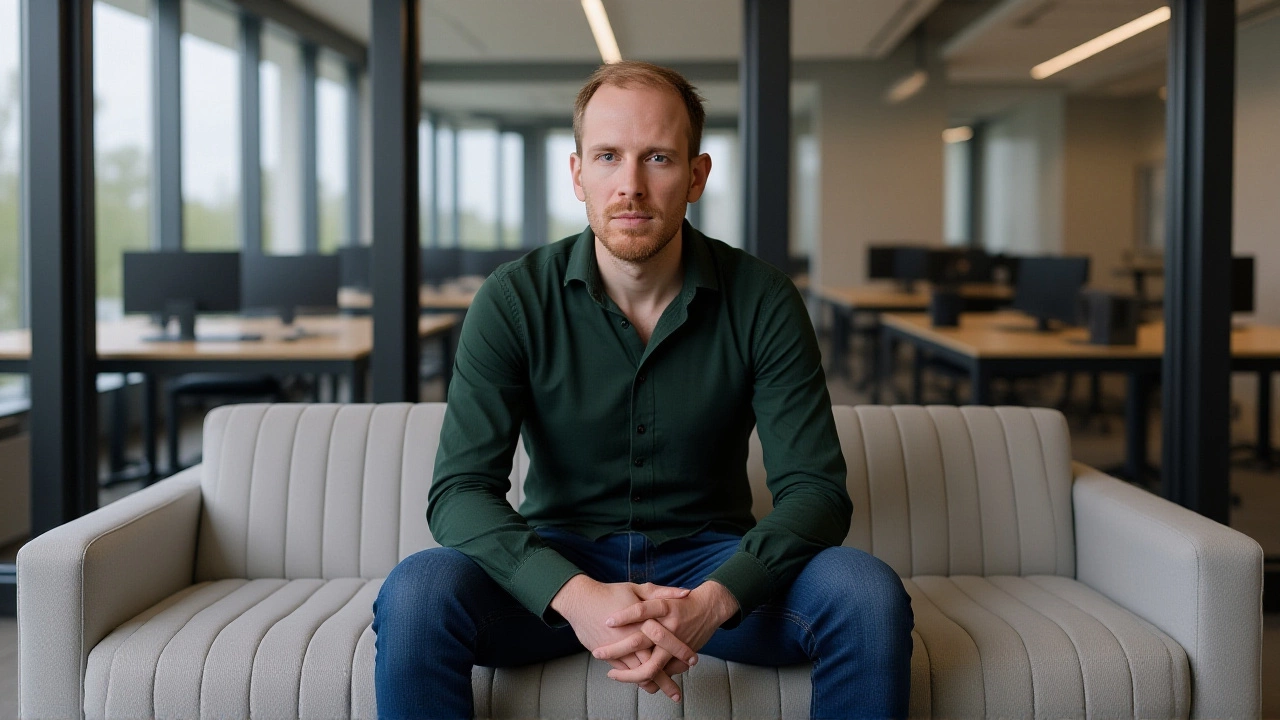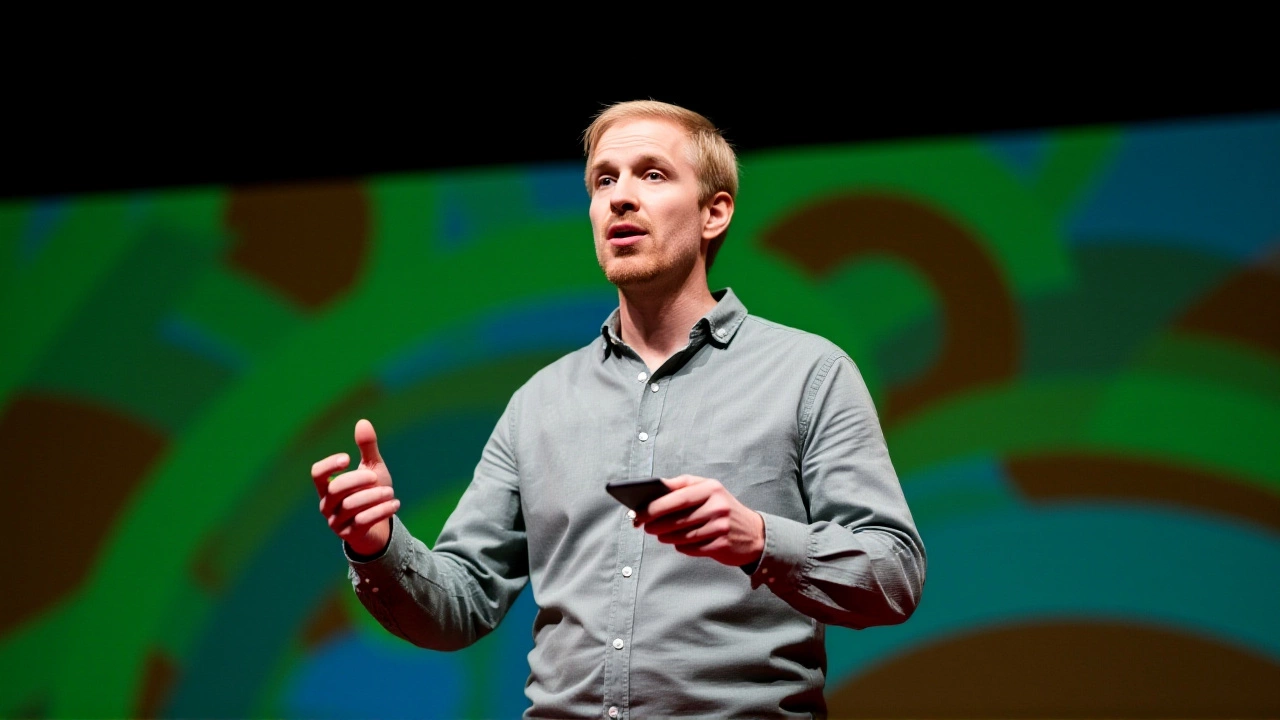When Rutger Bregman stepped onto the stage at Princeton University’s Robertson Hall on November 22, 2024, he didn’t just give a lecture—he issued a challenge. To about 100 students, many of whom were poised to join Wall Street firms or Silicon Valley startups, Bregman asked: "Where should the ladder stand? Which wall do you want to climb?" His answer wasn’t about climbing higher—it was about climbing differently.
The Birth of Moral Ambition
Bregman, the Dutch historian whose 2019 book Humankind: A Hopeful History became a global phenomenon translated into 46 languages, launched The School for Moral Ambition in March 2024 alongside his new bestseller, Moral Ambition: Stop Wasting Your Talent and Start Making a Difference. The book didn’t just sell—it ignited a movement. Within months, the nonprofit had grown from an idea into a network, with its first institutional anchor at Princeton. The goal? To redirect the brightest minds away from what Bregman calls "black hole" professions—consulting, corporate law, finance, and big tech—where talent gets siphoned into profit-driven roles instead of solving urgent global problems."Moral ambition," he explained that day, "is the desire to make the world a better place. It’s a combination of four things: the idealism of an activist, the ambition of an entrepreneur, the rigorous mindset of a scientist, and the humility of a monk." It’s not about guilt. It’s not about sacrifice. It’s about recalibrating success.
A Fellowship for the Unconventional
The centerpiece of this movement is the Moral Ambition Fellowship, open internationally until May 12, 2025. Unlike traditional scholarships tied to academic performance, these fellowships reward applicants who can articulate a clear, actionable plan to tackle systemic issues—climate collapse, inequality, mental health crises, or democratic erosion. Applicants must show not just passion, but strategy. One recent recipient, a 22-year-old from Nairobi, is building a decentralized network to distribute low-cost mental health tools via SMS in rural communities. Another, from Poland, is designing open-source software to track corporate tax evasion in the EU."Your twenties are really the time when you write the constitution for the rest of your life," Bregman told the Princeton crowd. "And right now, too many of you are signing contracts you’ll regret in your thirties."
From Campus to Capitol
Princeton’s chapter isn’t just a campus club. It’s a policy engine. Working with New Jersey state legislators, fellows have drafted model legislation to incentivize public service careers through loan forgiveness and tax credits for graduates who enter nonprofit or government roles for five years. "Real change can only be effectuated by a successful enterprise," Bregman insists. "We don’t need more charity bake sales. We need the new Tesla of the charity sector. Or, if you prefer—Hogwarts for do-gooders." The analogy isn’t flippant. Bregman’s team has already produced a documentary through Moral Ambition Films on addiction recovery in Appalachia, which screened at six university film festivals last fall. The film’s quiet power lies in its refusal to romanticize struggle—it shows systems, not saints.
Controversy and Critique
Not everyone buys in. Jacobin magazine called Bregman an "intellectual superstar" but criticized his "suspicion of systemic change," arguing that his focus on individual career choices overlooks the structural forces that make finance and tech so dominant. "Consciousness and change are not the same thing," the piece noted, referencing movements like Occupy and Black Lives Matter that sought to shift power, not just redirect resumes.Bregman doesn’t dismiss this. "I’m not against revolution," he said in a July 8, 2025, podcast interview with The Great Simplification, later republished on Resilience.org. "But revolutions need engineers. And right now, we’ve got too many poets—and not enough builders." He cites the CIRP Freshman Survey and Kevin Eagan’s 2016 study showing that since the 1970s, the percentage of U.S. college freshmen prioritizing "making a lot of money" has risen from 39% to 81%, while those who said "developing a meaningful philosophy of life" dropped from 85% to 41%. The numbers aren’t just statistics—they’re a cultural pivot.
Global Reach, Local Roots
The fellowship program now accepts applicants from over 40 countries. A recent cohort includes a French data scientist using AI to predict food shortages in West Africa, and a Brazilian educator creating peer-led mental health circles in favelas. French environmental thinker Jean-Marc Jancovici, president of Carbone 4, echoed Bregman’s philosophy in the podcast: "A simple drawing is often better than a long explanation." That’s the ethos here—clarity over complexity, action over abstraction.What’s next? Bregman says he’s in talks with universities in Germany, South Africa, and India to launch additional chapters. He’s also drafting a curriculum for high schools, hoping to introduce moral ambition before students even choose their majors. "We’re not trying to make people saints," he says. "We’re trying to make them see that they’re already powerful. They just need to point their power in the right direction."
Frequently Asked Questions
What exactly is the Moral Ambition Fellowship?
The Moral Ambition Fellowship is a global, need- and impact-based award offered by The School for Moral Ambition to students and young professionals under 28 who propose concrete projects addressing large-scale societal challenges. Unlike traditional scholarships, it rewards strategic thinking and measurable intent—not grades or test scores. Fellows receive up to $25,000 in funding, mentorship from global experts, and access to a network of over 200 alumni working in public service, climate tech, and nonprofit innovation. Applications close May 12, 2025.
Why target consulting, finance, and big tech?
Bregman argues these industries recruit the top 1% of graduates—people with exceptional analytical, leadership, and problem-solving skills—and channel them into roles that generate profit but rarely solve existential problems. A McKinsey consultant might optimize supply chains for a fossil fuel company; a Goldman Sachs analyst might structure tax shelters for billionaires. Meanwhile, public health agencies and climate NGOs struggle to hire equally skilled talent. The result, he says, is a massive misallocation of human potential.
How is this different from effective altruism?
While inspired by Benjamin Todd’s 2016 book 80,000 Hours, Moral Ambition adds a cultural and emotional dimension. Effective altruism often focuses on quantifiable impact—dollars saved, lives extended. Bregman’s movement emphasizes identity, meaning, and narrative. It’s not just about doing the most good—it’s about becoming the kind of person who can’t help but try. The fellowship application asks: "What kind of life do you want to look back on?"—not just "What problem will you solve?"
Is this only for students?
No. While the fellowship targets applicants under 28, The School for Moral Ambition also runs workshops for mid-career professionals seeking to pivot into social impact roles. Their "Second Act" program has already helped 37 lawyers, bankers, and engineers transition into nonprofit leadership, education reform, or environmental advocacy. One former investment banker now runs a nonprofit that provides legal aid to undocumented immigrants in Texas.
What’s the long-term goal of this movement?
Bregman wants to make moral ambition the default, not the exception. His vision includes a global network of university chapters, a high school curriculum, and public policy reforms that make public service financially viable. He’s not asking people to earn less—he’s asking them to define success differently. If a generation chooses purpose over prestige, he believes, the economy, politics, and culture will follow.
Can I apply if I’m not in the U.S.?
Yes. The Moral Ambition Fellowship is explicitly international. Applications are open to candidates based outside the United States, with past recipients from Kenya, India, Chile, Vietnam, and Norway. The selection process prioritizes local context and scalability over English fluency or Ivy League credentials. Non-English applications are accepted with certified translations.
